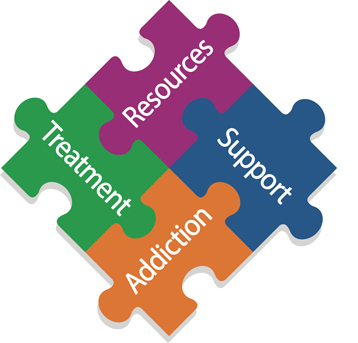Effective Medication-Assisted Treatment can reduce withdrawal symptoms in recovery.
Understanding Dependency Therapy: Discovering Effective Programs for Alcohol Dependency Recovery and Mental Wellness Assistance
Launching the trip towards recuperation from alcohol addiction entails a detailed approach that addresses both the physical and emotional elements of dependency. Simultaneously, psychiatric therapy and medication-assisted therapies are tailored to mitigate the underlying mental wellness problems, typically linked with addiction.

The Role of Clinical Detoxing in Managing Alcohol Withdrawal
Medical cleansing plays an important function in the administration of alcohol withdrawal, functioning as the initial action in the journey in the direction of recovery. This procedure carefully checks and deals with the severe physical signs of withdrawal that happen when a specific quits consuming alcohol. The key aim is to stabilize the patient literally and mitigate possible health and wellness threats associated with withdrawal, such as seizures and delirium tremens.
Doctor commonly administer medications to alleviate signs, handle pain, and stop difficulties. The regulated environment guarantees security, addresses dietary deficiencies, and prepares individuals for the following phases of dependency therapy. Effective cleansing is vital, as it creates the foundation for additional therapeutic treatments, concentrating on long-term recuperation and regression prevention.
Psychiatric Therapy Techniques for Twin Medical Diagnosis Therapy
Adhering to the stabilization supplied by clinical detoxing, psychiatric therapy comes to be an important part in treating individuals with a twin diagnosis. Cognitive Behavioral Therapy (CBT) is generally employed to deal with maladaptive reasoning patterns, helping individuals comprehend and manage their behaviors and emotions properly. Dialectical Behavior Treatment (DBT), which stresses the growth of dealing skills to manage anxiety, manage emotions, and improve partnerships, is particularly helpful. Integrative approaches, incorporating elements from different restorative methods, dressmaker check my site treatment to private demands, boosting the effectiveness of double medical diagnosis management. Through these psychotherapeutic methods, individuals gain understandings right into their addictive actions and psychological wellness problems, promoting an all natural recovery process and considerably boosting their lifestyle.

The Importance of Medication-Assisted Therapy (FLOOR COVERING)
MAT makes use of FDA-approved drugs, such as naltrexone, buprenorphine, and methadone, to maintain mind chemistry, obstruct the blissful results of alcohol, and reduce yearnings, paving the way for a sustainable recuperation. By supporting the organic basis of addiction, Floor covering addresses the detailed health demands of individuals, facilitating improved outcomes in recuperation programs.
Integrating Alternative Treatments Into Alcoholism Recuperation
Although Medication-Assisted Therapy (FLOOR COVERING) is vital, incorporating all natural therapies can significantly improve the recuperation process for those battling alcohol dependency. Alternative therapies encompass a variety of non-medical recovery how long does opioid withdrawal last techniques that focus on recovery the mind, body, and spirit (Cognitive Behavioral Therapy (CBT)). Each of these techniques intends to boost psychological health, reduce anxiety, and boost overall well-being, consequently supporting the psychological and mental elements of healing.
Navigating Assistance Systems and Area Resources for Continual Recovery
After addressing the person's holistic demands in alcohol addiction healing, attention has to also be given to exterior factors that contribute to sustained sobriety. Reliable healing programs highlight the significance of building solid networks, which can consist of assistance groups like Alcoholics Anonymous, family members involvement, and recovery mentoring. Sustained recuperation is hence seen not only as a person's trip yet as a community-supported process, cultivating an atmosphere where continuous recuperation is supported and celebrated.
Final Thought
To conclude, efficient alcoholism recuperation programs incorporate a multifaceted technique that includes clinical detoxification, psychiatric therapy, and medication-assisted therapy. Incorporating holistic therapies and leveraging support systems are crucial for dealing with both physical and psychological wellness challenges. Such extensive treatment not company website only helps take care of withdrawal symptoms but likewise sustains long-lasting sobriety and mental wellness, consequently boosting an individual's capability to lead a healthier and much more satisfying life post-recovery.